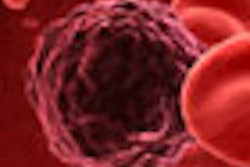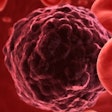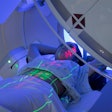Head and neck squamous cell carcinomas (HNSCCs) with certain distinctive patterns could respond to specific targeted therapies, according to research presented on April 6 at the American Association for Cancer Research annual meeting in Washington, DC.
The study was part of The Cancer Genome Atlas (TCGA), a National Institutes of Health project to catalogue the genetic alterations responsible for several types of cancer, in particular those with a poor prognosis.
Researchers from the University of North Carolina at Chapel Hill conducted comprehensive genomic analysis of tumor tissue and healthy tissue from 279 patients with previously untreated HNSCC. About 80% of the patients were smokers.
They identified more than 30 sites of significant somatic copy number alteration, or sites of significant change in the number of copies of a certain gene or genetic region. Most of the sites were identical to those recently identified in lung squamous cell carcinoma.
HNSCC is a tobacco-related cancer, and altered genomes are often seen in other tobacco-related tumors. The researchers observed numerous similarities to other squamous tumors, including lung squamous cell carcinoma.
Studying the similarities and differences between tumors, such as the copy number alterations, will allow researchers to better understand the pathways altered in cancer, the study authors noted.
The researchers also identified differences in alterations between tumors infected with the human papillomavirus (HPV) and those that were HPV-negative.
The study clarifies observations that have been made in smaller cohorts of HNSCC patients: Epidermal growth factor receptor (EGFR) gene amplification is infrequent in tumors that are infected with HPV. But these same tumors have a high rate of PIK3CA gene mutations, the researchers found.
The finding raises questions about the efficacy of the EGFR inhibitor that has been approved by the U.S. Food and Drug Administration for treating metastatic HNSCC in patients with HPV-positive tumors, they noted. It also suggests that patients may benefit from treatment with the inhibitors of PIK3CA that are in development.



















